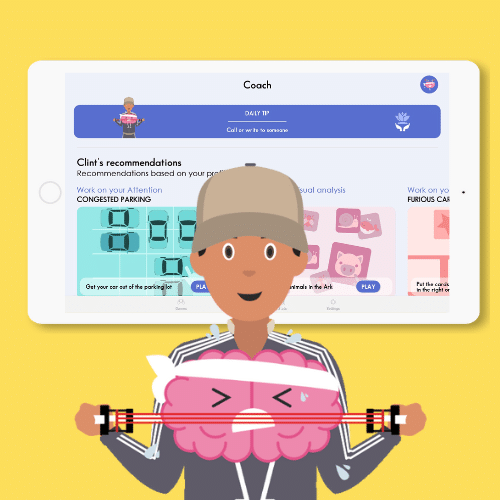Dynseo PROPOSES
Cancer with CLINT and SCARLETT

Cancer can have a huge impact on a person‘s mental and physical health. Common treatments, such as chemotherapy and radiation therapy, can lead to cognitive side effects such as memory problems, difficulty concentrating, and emotional changes. These symptoms are often grouped together under the term “brain fog“ or “chemobrain.” Cognitive rehabilitation can help patients regain their cognitive abilities and quality of life after cancer.
Memory Disorders
Difficulty remembering names or events
Difficulty remembering daily tasks
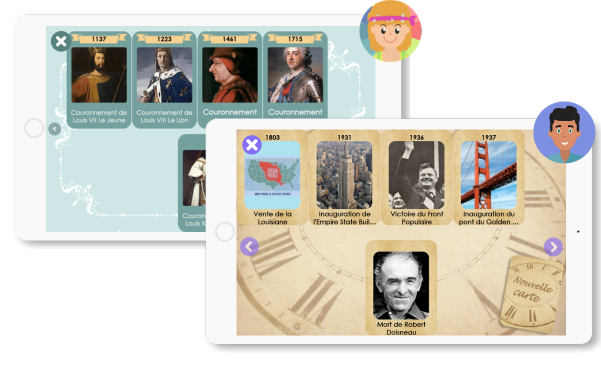
Concentration Disorders
Difficulty concentrating for long periods of time
Tendency to be distracted easily
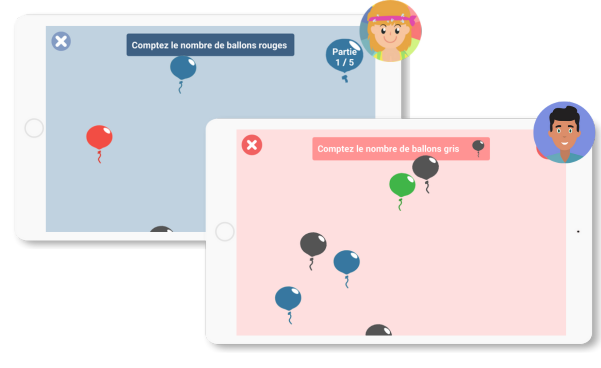
Communication Disorders
Difficulty finding the right words
Difficulty following a conversation
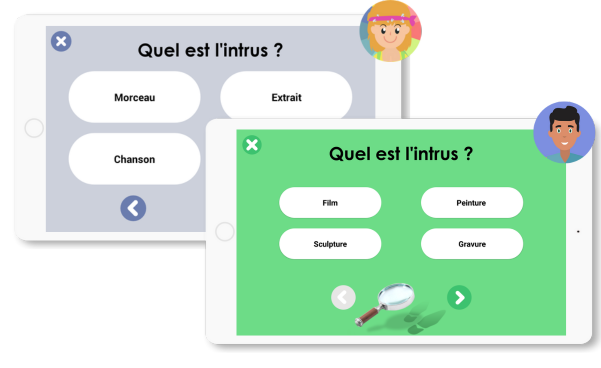
Emotional Disorders
Depression, anxiety and irritability
Difficulty regulating emotion
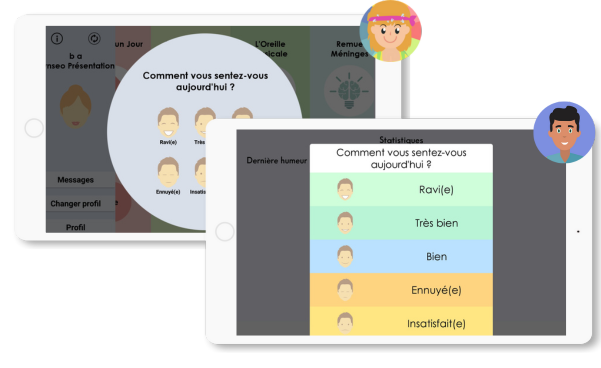
IMPORTANCE OF COGNITIVE REHABILITATION AFTER CANCER

Cognitive rehabilitation can help patients reduce the side effects of cancer and treatment, improve their quality of life and emotional well-being, and regain their self-esteem and independence. It is important for patients to know that there are solutions for managing the cognitive symptoms associated with cancer. Our coaches Scarlett (easy version) and Clint (difficult version) will list here the main practices and tips for cognitive rehabilitation after cancer. We will review the common cognitive effects of cancer, the goals and methods of cognitive rehabilitation, and best practices for helping patients regain their cognitive abilities.
Cognitive and behavioral therapies can help develop strategies to improve memory, concentration and executive function.
The goals of cognitive rehabilitation after cancer are to:
- reduce cognitive side effects associated with cancer and treatment,
- improve quality of life and emotional well-being,
- promote social and professional rehabilitation,
- regain self-esteem and autonomy.

Adaptation of Scarlett and Clint games to cancer needs
IN THIS GUIDE
01.
Games adapted for memory disorders
Explore a diverse range of games designed to stimulate different aspects of memory, such as semantic memory and visual memory.
03.
Games adapted for concentration disorders
Explore a diverse range of games designed to stimulate different aspects of communication, such as comprehension and semantic classification.
02.
Games adapted for concentration disorders
Explore a selection of games specifically designed to help improve concentration, offering a variety of challenging activities tailored to individual needs.
04.
BONUS : wellness monitoring
Express your mood and discover wellness tips from your coaches Clint and Scarlett to cultivate a balanced life.
I would like to receive the complete guide complet to accompanying people suffering from cancer
with CLINT and SCARLETT
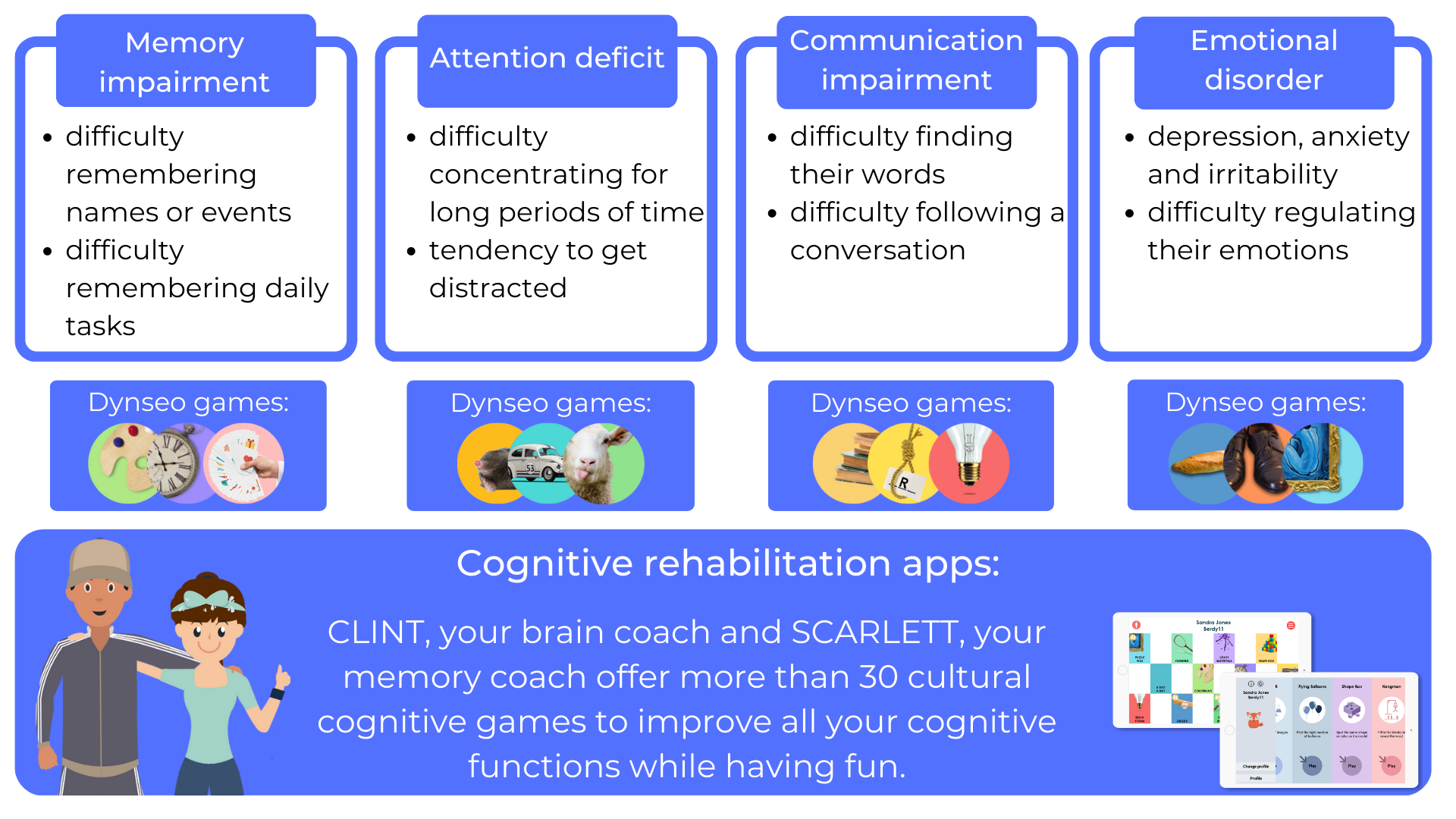
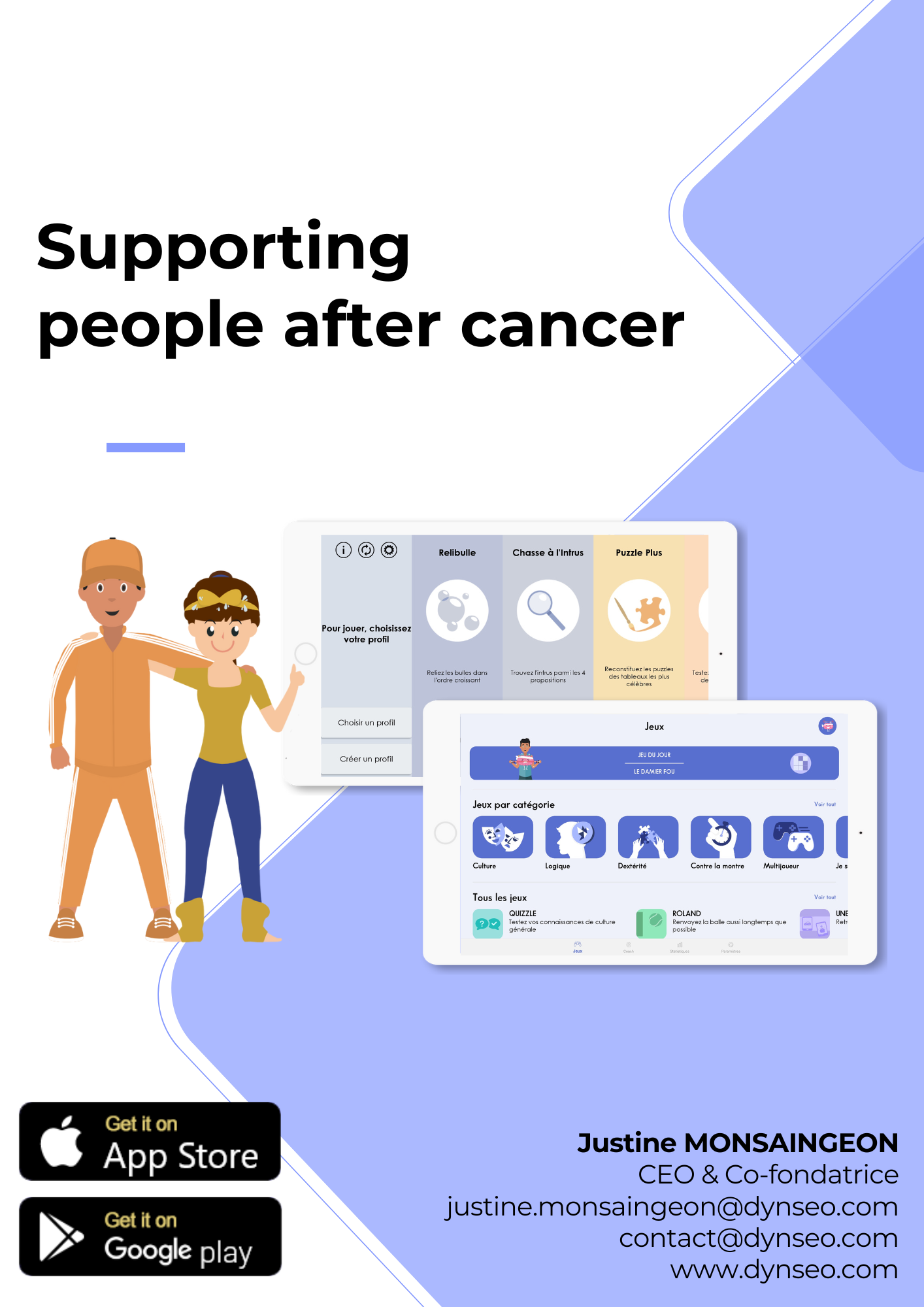
01.
GAMES ADAPTED FOR MEMORY DISORDERS
Memory–friendly games in the context of cancer offer a fun and therapeutic way to support patients in preserving their cognitive abilities during their treatment journey.

ColorMind
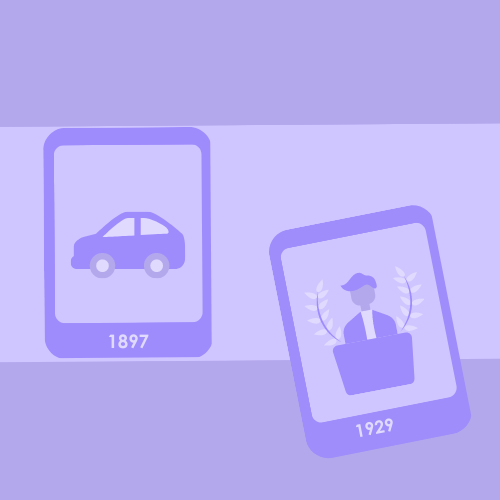
A Card A Date

Furious Cards
Cancer can have a huge impact on a person’s mental and physical health. Common treatments, such as chemotherapy and radiation therapy, can cause cognitive side effects such as memory problems, difficulty concentrating and emotional changes. These symptoms are often referred to as “brain fog” or “chemobrain”. Cognitive rehabilitation can help patients regain their cognitive abilities and quality of life after cancer.
Importance of cognitive rehabilitation after cancer
Cognitive rehabilitation can help patients reduce the side effects of cancer and treatment, improve their quality of life and emotional well-being, and regain their self-esteem and independence. It is important for patients to know that there are solutions for managing the cognitive symptoms associated with cancer. Our coaches Scarlett and Clint will list here the main practices and tips for cognitive rehabilitation after cancer. We will review the common cognitive effects of cancer, the goals and methods of cognitive rehabilitation, and best practices for helping patients regain their cognitive abilities.
Understanding cognitive rehabilitation
Cognitive rehabilitation is a form of therapy designed to help patients recover their cognitive abilities after illness, injury or medical treatment. Cognitive and behavioral therapies can help develop strategies to improve memory, concentration and executive function.
The goals of cognitive rehabilitation after cancer are to:
- reduce cognitive side effects associated with cancer and treatment,
- improve quality of life and emotional well-being,
- promote social and professional rehabilitation,
- regain self-esteem and autonomy.
Cognitive rehabilitation can be done in different ways, depending on the individual needs of the patient. Common methods include:
- cognitive stimulation exercises, such as puzzles, memory games and problem-solving activities,
- behavioral approaches, such as task organization and planning,
- cognitive and behavioral therapies, which help develop strategies to improve memory, concentration and executive function,
- relaxation and stress management techniques, such as meditation and deep breathing.
Cognitive consequences of cancer
-
Memory impairment
Cancer patients may have difficulty remembering names, dates and important events. They may also have difficulty remembering everyday tasks, such as taking medications or paying bills.
-
Attention deficit
Cancer patients may have difficulty focusing on specific tasks, which can make work and daily activities more difficult. They may have difficulty concentrating on tasks for long periods of time and are easily distracted.
-
Communication impairment
Cancer patients may have difficulty communicating effectively with family, friends and colleagues. They may have difficulty finding the right words or following a conversation, which can lead to feelings of isolation and frustration.
-
Emotional disorder
Cancer patients may experience emotional changes such as depression, anxiety and irritability. They may have difficulty regulating their emotions and coping with changes in their lives.
Tips for cognitive rehabilitation after cancer
- Seek professional help: Cancer patients should consult a mental health professional or neuropsychologist for an assessment of their cognitive abilities and an individualized treatment plan.
- Engage in mentally stimulating activities: Cancer patients can improve their memory and concentration by engaging in mentally stimulating activities, such as reading, puzzles and memory games.
- Use memory strategies: cancer patients can use memory strategies, such as repetition and association, to improve their ability to remember important information.
- Take regular breaks to avoid mental fatigue: Cancer patients can take regular breaks to avoid mental fatigue. It is important to rest regularly and not to push your cognitive abilities too much.
- Maintain a healthy diet and regular physical activity: Healthy eating and regular physical activity can improve cognitive function and reduce the risk of mental fatigue. It is important to eat a variety of nutritious foods and exercise regularly.
- Find ways to reduce stress: Stress can have a negative impact on cognitive function. Cancer patients can find ways to reduce stress, such as meditation, yoga or behavioral therapy.
- Establish routines: Establishing routines can help cancer patients organize their days and improve their ability to focus and remember important tasks.
Seek help if necessary and surround yourself with social support
Social support is important for cancer patients. Cancer is a disease that can affect not only the body, but also the mind and emotions. Social support can help patients cope with difficult emotions, such as fear, sadness and anger, as well as manage the physical side effects of the disease and treatments. Friends, family and mental health professionals can all provide important emotional support for cancer patients. Support groups can also be a valuable source of social support, as they allow patients to connect with others who have similar experiences and share strategies for coping with the disease. Ultimately, surrounding yourself with social support can help cancer patients feel less alone, more understood and stronger in the face of the challenges of the disease. If you are experiencing cognitive difficulties, it is also important to seek help from a qualified health care professional. Mental health professionals can help develop strategies to improve cognitive function and cope with the emotions that often accompany cancer.
Thus, cognitive rehabilitation after cancer can help patients regain their cognitive function and improve their quality of life. It is important to consult a mental health professional to assess cognitive abilities and develop an individualized treatment plan. Patients can also take steps to improve their cognitive function, such as engaging in mentally stimulating activities, taking regular breaks to avoid mental fatigue, maintaining a healthy diet and regular physical activity, finding ways to reduce stress, establishing routines, and seeking help if needed.
Best practices for cognitive rehabilitation after cancer
Cognitive rehabilitation can play an important role in improving quality of life after cancer. Cancer treatments can have a negative impact on cognitive function, including memory, attention and concentration. These cognitive difficulties can affect patients’ ability to perform daily tasks, work and interact with others. Cognitive rehabilitation aims to improve cognitive function and help patients regain their pre-cancer quality of life.
Cognitive rehabilitation can help patients manage the side effects of the disease and treatments, which can reduce the stress and anxiety associated with the disease. Patients who participate in cognitive rehabilitation can also learn strategies to improve their cognitive function, such as time management, organization and planning. These skills can help patients resume their daily lives after cancer and regain their self-esteem.
Here we will look at several activities to train your cognitive functions after cancer.
-
Cognitive stimulation exercises
Cognitive stimulation exercises are a common practice for cognitive rehabilitation after cancer. These exercises are designed to improve cognitive skills such as memory, attention, concentration and problem solving. Cognitive stimulation exercises may include memory games, strategy games, puzzles and reading or writing exercises. These exercises are often tailored to the individual needs of patients and are supervised by a mental health professional.
-
Behavioral approaches
Behavioral approaches can also be useful for cognitive rehabilitation after cancer. Behavioral approaches focus on behaviors that can affect cognitive function, such as procrastination, distraction and avoidance. Patients learn strategies to modify these behaviors and improve their cognitive function. Behavioral approaches may include time management, organization and planning techniques.
Cognitive and behavioral therapies
Cognitive and behavioral therapies are another common practice for cognitive rehabilitation after cancer. These therapies focus on how thoughts and emotions affect behavior and cognitive function. Patients learn to identify and change negative thoughts that may be affecting their cognitive function. Cognitive and behavioral therapies may include techniques such as cognitive behavioral therapy (CBT), dialectical behavioral therapy (DBT) and acceptance and commitment therapy (ACT).
-
Relaxation and stress management techniques
Relaxation and stress management techniques can also be useful for cognitive rehabilitation after cancer. Stress can have a negative impact on cognitive function, but relaxation techniques such as deep breathing, meditation and yoga can help reduce stress and improve cognitive function. Patients can also learn stress management techniques, such as problem solving and assertive communication, to better cope with stressful situations. Mental health professionals can help patients find the relaxation and stress management techniques that work best for them.
Thus, cognitive rehabilitation can help patients maintain their independence and improve their quality of life. By learning to use their cognitive skills more effectively, patients can be better equipped to perform everyday tasks, work and interact with family and friends. Cognitive rehabilitation can also help patients regain their confidence and feel more in control of their lives after cancer.
Using new technologies
Today, the phone, the tablet or the computer are part of our life. They can therefore be used during cognitive rehabilitation after cancer. Indeed, on our phone or tablet we can have several applications or supports at the same time. You can use relaxation apps, apps to deal with emotions or to stay in touch with your loved ones or have apps for cognitive stimulation.
During post-cancer cognitive rehabilitation, it is important to be followed by a health professional and to follow specific therapies. To consolidate the strategies learned during therapy, it is important to continue to train and stimulate your brain at home as well. So here is the usefulness of having applications in your phone or tablet.
CLINT, your brain coach for post-cancer cognitive rehabilitation
In addition, on the Clint app you can play with two players. You can play together on the same tablet or send challenges remotely. These game modes allow you to share activities with your friends and maintain good relationships.
The goal of cognitive rehabilitation is to improve the more fragile functions. In the app you can find your game statistics to follow your evolution over time. You can look at the games played, the cognitive functions worked on and your success rate over time. Seeing its evolution over time also promotes motivation and self-esteem.
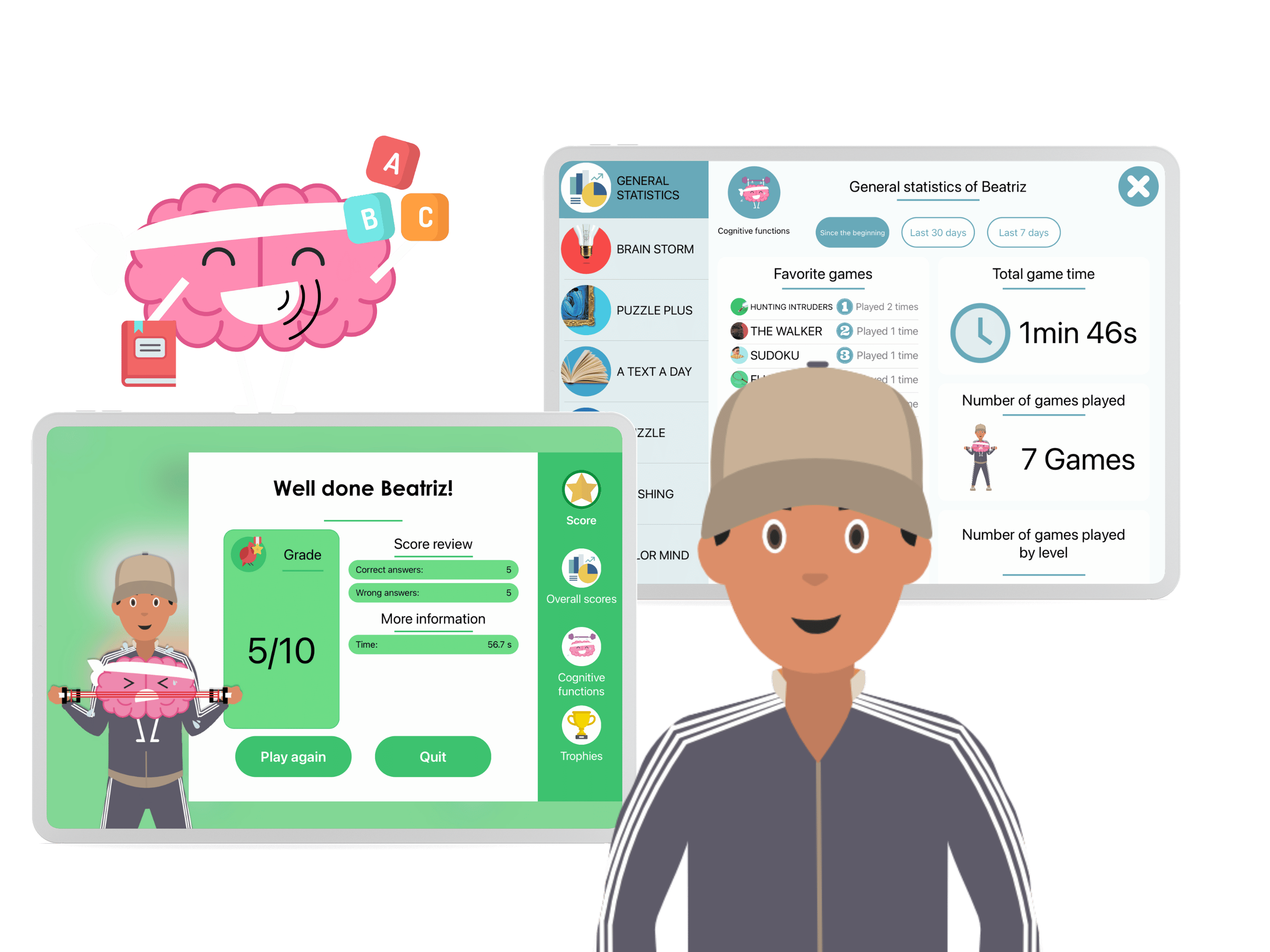
CLINT’s games, your brain coach
Furious cards
In this game, you have to put the presented cards in the right order.
This game works the immediate memory since you have to look at and memorize a model and reproduce it afterwards. You can also work on language by naming the pictures you see and trying to memorize the word order. In the difficult level there are intruders so you have to stimulate several cognitive functions at the same time.
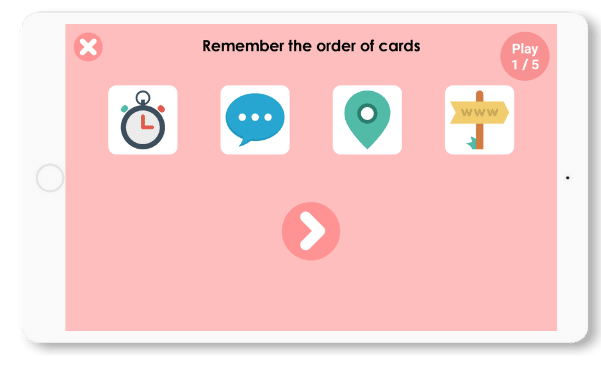
Congested Parking
In this game you have to get the yellow car out of the parking lot.
This game makes you work on organization and planning since you have to imagine the movements of the cars and find the right sequence of moves to make. There may be several solutions, but you need to find the fastest and most effective one.
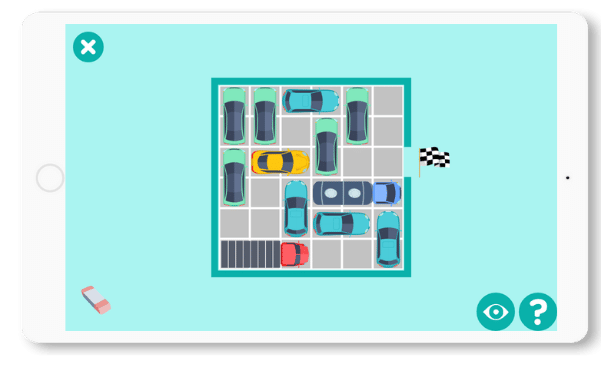
Brain Storm
In this game, you have to put the words in order.
The sentences to be constructed are proverbs or famous sayings so you can also use memory and general knowledge. However, the most stimulated cognitive function remains language because you have to analyze the words and find the right order to form a meaningful sentence.
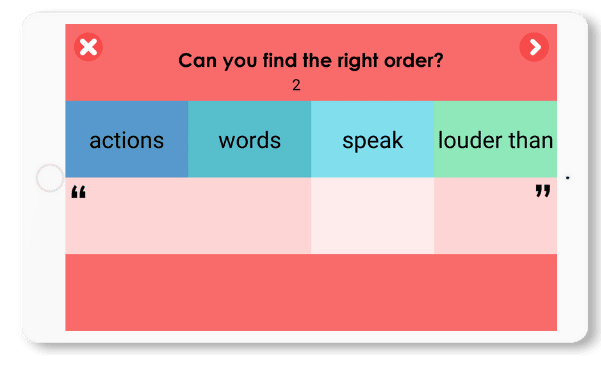
To go further …
CLINT, YOUR BRAIN COACH
